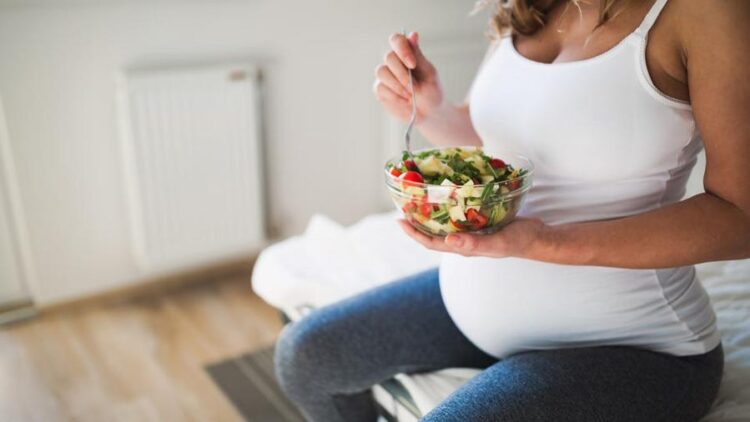This year again when we honour maternal bonds, motherhood, and the role of mothers in society as we celebrate Mother’s Day on May 8 this year, but as we celebrate mothers and recognise their selflessness in putting family first, it’s also important to focus on their own health and well-being. While we can still treat our mothers to breakfast in bed, cards, flowers, and gifts, let us encourage women, whether new or future mothers, to focus on their nutrition based on the body changes they experience at various stages of life this year.
“A woman experiences many milestones throughout her life, and her health should be top of mind at all times.” Now is an excellent time to consider how women can keep their minds and bodies healthy, whether they are new mothers navigating motherhood with a day-old daughter or women in their golden years.”
Fitness and nutrient tips for pregnant moms and also healthy ageing of mothers-
1. Begin young – Growth spurts and puberty-related changes are common during adolescence. As teenagers grow, three critical systems in their bodies change: muscle mass and long bones, hormonal maturity and blood, and immunity. Girls require the proper nutrients to ensure that these areas grow properly.
a) For muscle mass and bone development: Most people associate bone development with adequate protein and calcium, but vitamin D, magnesium, phosphorus, vitamin K, collagen, and essential fatty acids are also required for bone health and turnover. Consuming these nutrients can help lower a teen’s risk of bone fracture now and in the future, as well as their chances of developing osteoporosis.
b) Iron and B vitamins like B-12 and folate are required for the development of healthy red blood cells. Teen girls who lack iron are unable to produce the red blood cells required to transport oxygen throughout the body. If one becomes anaemic due to low iron stores, this can result in fatigue, dizziness, and poor athletic performance.
c) Hormonal maturity: A well-balanced diet, adequate proteins, high fibres, a stress-free lifestyle, regular exercise, weight control, and adequate sleep are essential for a smooth transition of hormonal foundation monthly cycles and future pregnancy.
2. Eating well during pregnancy: A woman’s diet during pregnancy is critical to both her and her baby’s health.
a) Iron is necessary for the formation of red blood cells, which transport oxygen to a growing baby. Iron-rich foods include dark leafy greens, lean meats, nuts, tofu, and white beans.
b) Folate is a B vitamin that is essential for healthy cell growth and the prevention of neural tube defects in the spinal cord. The key is to consume enough folate before and during pregnancy. This This can be found in vegetables including spinach, broccoli, sprouts, peanuts, peas and more.
c) Calcium is essential for foetal bone and tooth development, as well as maternal bone health. Calcium can be found in foods other than dairy, such as soy products, broccoli, canned salmon, dark leafy greens, and so on.
d) Protein: Adequate maternal dietary energy and protein intake during pregnancy are required for a successful pregnancy. Protein is required not only for the foetus’s healthy growth and development, but also for accretion in maternal tissues. Proteins aid in the formation and maintenance of tissue and muscle mass.
e) DHA, a special omega-3 fat, has been shown to aid in the development of a baby’s brain, eyes, and nervous system. DHA is found in foods such as salmon, tuna, eggs, nuts, and seeds.
f) Fiber: Many pregnant women have constipation during their pregnancy. To avoid this unpleasant state, consume plenty of fiber-rich fruits, vegetables, beans, and whole grains, as well as plenty of water.
3. The significance of prioritising the motherhood journey: Mothers of teenagers and children bear dual responsibility for their own health as well as instilling healthy eating habits in their children. What we eat can have an impact on our health as we get older, so it’s important to think about what we eat and drink.
The following are essential ingredients for future healthy ageing:
a) Protein is necessary at any age, whether you want to build muscle, maintain strength, or recover from surgery. Protein can be found in meats, beans, dairy products, fish, nuts, seeds, and tofu.
b) Fiber is commonly thought to be beneficial to digestive health, but roughage does more than just give your gut a workout. Fiber-rich foods such as fruits, vegetables, beans, and whole grains can aid in cholesterol reduction and weight management simply by keeping you full.
4. Healthy ageing is essential in the golden years: Did you know that people over the age of 40 can lose up to 8% of their muscle mass per decade, with the rate of decline potentially doubling after the age of 70? Sarcopenia, or advanced muscle loss, affects nearly one in every three people over the age of 50.
A higher protein intake is recommended for ageing adults to support muscle and strength needs.
a) Calcium: As we age, our bones lose some of their calcium and mass, increasing the risk of osteoporosis and fractures. That is why calcium is essential for women over the age of 50. Milk, yoghurt, and cheese are excellent sources of calcium.
b) Vitamin D is essential for strong bones, and unlike other nutrients, we can only synthesise vitamin D when our skin is exposed to sunlight. It can also be found in eggs, fatty fish, and dairy products fortified with vitamin D.
For healthy digestion, eat a well-balanced diet rich in vegetables, fruits, whole grains, and probiotics.
Source:HT







 Finance
Finance







